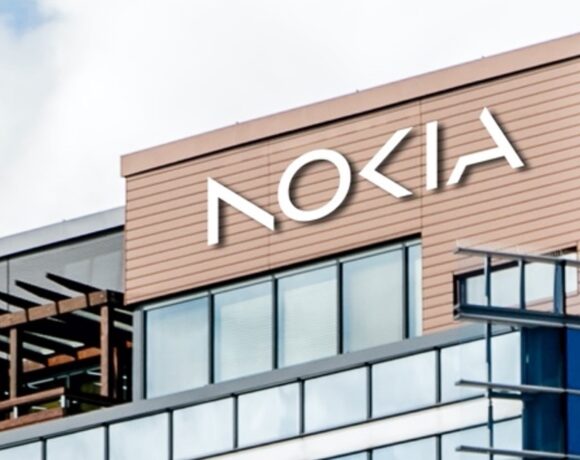Building personalised career journeys with AI in the UAE and GCC region

By Sean Hinton, Founder of SkyHive

Artificial intelligence (AI) is revolutionising how we work and, just as critically, how people navigate their careers. This transformation holds particular relevance for the fast-evolving labour markets of the UAE and the wider GCC region, where AI’s impact is poised to reshape the workforce in meaningful ways.
AI and job disruption: A global shift with local impact
Globally, AI is transforming industries, redefining jobs, and challenging workers to upskill. An IMF report concluded that 40% of jobs worldwide will be affected by AI, either through automation or the emergence of new skills needed to collaborate with these advanced systems.
In the UAE, where 90% of the workforce comprises expatriates, this shift has particular significance as the UAE government seeks to balance economic growth with its Emiratisation policy, which focuses on increasing job opportunities for Emiratis. The youth unemployment rate in the UAE sits at 11%, five times higher than the national average, signalling an urgent need for innovation in how young people approach the job market.

AI is not just about redefining jobs; it is about empowering Emirati youth and workers across the region with a more personalised understanding of their career paths. By analysing an individual’s skills, education, and experience, AI can create a unique ‘Skill DNA’ that can match them to career opportunities they may not have considered or even know they were qualified for, putting them in the driver’s seat of their career journey.
Unlocking career pathways in the UAE and GCC
Today’s labour market presents over 130 million career pathways globally, evolving rapidly due to technological innovation, globalisation, and geopolitical shifts. Workers need more than a static resume or traditional job board to navigate this complexity.
This is particularly vital in the UAE as the nation focuses on building a competitive workforce. Workers must have access to real-time insights about their skill DNA, the career pathways available, and clear guidance on closing any skill gaps through targeted training to stay ahead in the evolving labour market and understand the necessity of continuous learning and adaptation.
AI-powered platforms can bridge these gaps, providing real-time data on emerging jobs and skills and the education and training necessary to succeed. This is especially important for the UAE, where AI is set to disrupt key roles like business intelligence analysts and project managers at rates far above the global average, according to the World Economic Forum’s Future of Work 2023 report. By leveraging AI, Emirati youth and workers across the GCC can stay ahead of these changes and prepare for the future.
Breaking down silos in the labour market
Globally, the labour market is composed of four key players:
- Workers seeking employment or upskilling opportunities
- Employers searching for talent
- Educational institutions and educators providing the necessary training
- Governments aiming to build a competitive workforce
Historically, these players have operated in silos, leading to inefficiencies. AI has the potential to unify these efforts, creating a seamless exchange of information between all parties. This unified approach is essential to developing a thriving workforce for the UAE, where diversification and competitiveness are critical national priorities.

An additional challenge is the language of skills. According to a labour market analysis from SkyHive by Cornerstone, a skill like cloud computing may have 80 different variations, creating confusion for employers, educators, and workers alike.
AI can standardise these definitions across the labour market, ensuring everyone operates with the same understanding. This clarity is crucial for the UAE as it works to upskill its workforce and remain competitive.
SkyHive and Al Ghurair partnership
One shining example of AI’s potential in the UAE is Massar Al Ghurair, a joint initiative between The Abdulla Al Ghurair Foundation and SkyHive by Cornerstone. This platform leverages SkyHive’s groundbreaking technology to create personalised career journeys for young Emiratis and expatriates aged 18-35.
How Massar Al Ghurair works:
- Mapping Skill DNA: Users can upload their CVs and have AI instantly generate their Skill DNA, clearly showing their current capabilities, including skills gained through unconventional means like community activities or freelance work.
- Identifying skill gaps: The platform helps users identify the skills they need to move into specific roles and connects them with educational institutions in the UAE or online courses to close those gaps.
- Career pathways and job matching: Massar Al Ghurair matches users with jobs in the UAE and provides insights into emerging roles across the GCC region, allowing workers to future-proof their careers.
- Supply and demand data: The platform’s AI-driven insights go beyond the present, offering forecasts on how specific roles will evolve, such as whether AI skills will soon become essential for project managers.
Through Massar Al Ghurair, AI is unlocking opportunities for Emirati youth to navigate the complexities of the modern job market, ensuring technological advancements do not leave them behind.
Empowering workers with AI: A skill passport for the future
The true power of AI lies in its ability to provide each worker with a ‘skill passport’ that tells employers what they know and what they can do while also giving the worker a roadmap for where their career could go. This transformative tool can shift the balance of power, allowing workers to proactively guide their careers instead of reacting to changes in the job market.
As the UAE continues to embrace AI as part of its national development strategy, initiatives like Massar Al Ghurair represent the future of personalised career development. AI will help workers draft resumes and create opportunities, close skill gaps, and drive economic progress across the GCC.
Featured image: Today’s labour market presents over 130 million career pathways globally. Credit: Sora Shimazaki
An AI pioneer and global future of work thought leader, Sean Hinton is the Founder of SkyHive by Cornerstone. This generative AI software company rapidly reskills companies and communities worldwide. Recognised as a top AI innovation by Forbes, a Gartner Cool Vendor in HCM and a World Economic Forum Technology Pioneer, SkyHive invented Quantum Labour Analysis, the application of AI to analyse a workforce at its most granular and real-time level. It applies this technology to help companies and communities worldwide transition from job-based to skill-based at-pace and at-scale.
Sean previously served as President of the Waterpark and Attractions Divisions with WhiteWater West Industries. He is also a SkyHive and Technation, Canada’s IT Industry Association board member. He formerly served on the OECD Future of Work Task Force board and the Global Partnership on Artificial Intelligence. He is an Unreasonable Fellow, a World Economic Forum Technology Pioneer, a World Economic Forum Global Innovator, a Henry Crown Fellow, and a Young President’s Organization member. Sean is based in Palo Alto, California.
Sean Hinton: https://www.linkedin.com/in/ sean-hinton-1a841921/
Last Updated on 6 months by News Desk 2











